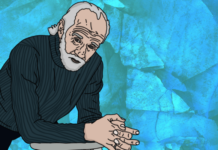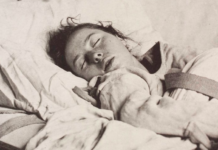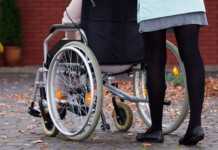Review of Pediatric Antidepressant Studies Finds Evidence of Benefit Lacking
Review of pediatric antidepressant studies finds the vast majority are negative on primary outcomes and an increased risk for suicidality.
My Ativan Affair and the Aftermath
My sincere message to those whose vitality and lives have been sapped and zapped by this iatrogenic dis-order: most of us DO recover! And even if it is not without some benzo remnants lodged in our cellular memory, what we learn about our own resilience will guide us to places in our lives we didn't expect to reach. HOPE was my key through the arduous path of withdrawal and recovery.
New Clinical Guidelines on Deprescribing Benzodiazepines
New guidelines recommend deprescribing benzodiazepine receptor agonists for adults.
Unnecessary and Accidental Use of ADHD Drugs Increases
From CNN: According to a new study, exposure to unprescribed ADHD drugs has increased by more than 60% among U.S. children since 2000.
"The study, published Monday...
Review Finds Lack of Evidence for Antidepressants in Treatment of Insomnia
Results from a Cochrane meta-analysis find that the common practice of prescribing antidepressants to treat insomnia is not supported by current evidence.
Antidepressant Use Linked to Higher Risk of Premature Death
From CTV News: A new study found that the risk of premature death increased by 33 percent in people who use antidepressants.
Article →
QuarterWatch Reports: Perspectives on Emerging Drug Risks
A new issue of QuarterWatch critiques the recent Ciprani meta-analysis on antidepressants and reports on the adverse effects of the newest antidepressant, vortioxetine.
Report →
Mental Health Industry Should Embrace Choices Beyond Drugs
In this video for NowThis, Yana Jacobs critiques the mental health industry standard of prescribing drugs as the first-line treatment for "mental illness." She emphasizes...
Tapering Strips Help People Discontinue Antidepressants
A new study by Peter Groot and Jim van Os has found that tapering strips help people successfully discontinue antidepressant medications.
Medical Malpractice Verdict Seen as Powerful Message
From PR Newswire: On May 16th, a $2 million verdict was issued in favor of Stanley and Marianne Truskie, whose son died from toxic levels...
The $3 Billion Research Breakdown
In this piece for Medscape, Jodi S. Cohen chronicles the research malpractice case of child psychiatrist Mani Pavuluri, who put vulnerable children at serious risk...
Increasing Antidepressant Dose Does Not Improve Outcomes
A systematic review of literature and meta-analysis indicates that there is no clinically or statistically significant effect of antidepressant dose increase after nonresponse to initial treatment.
The Next Deadly Epidemic: Adult ADHD and Stimulants?
I refuse to be one of the doctors that contribute to the next deadly epidemic. I see too many similarities between stimulants and opiates — they’re both strongly addictive, stimulate our pleasure centers, and have long-term dangerous mental and physical effects. And they both “work” in the short term without actually fixing anything.
Treatment-Resistant Depression as a Sign of Unconscious Health
In this video, Dr. Elio Frattaroli describes how biological explanations for "treatment-resistant depression" often ignore the meaning and context of a patient's suffering. He...
The Sound of Madness
From Harper's Magazine: People who hear positive, encouraging voices often seen as spiritual guides or messages and people diagnosed with schizophrenia are usually thought of as...
ADHD: Disempowerment By Diagnosis
Giving a diagnosis of ADHD can profoundly disempower students and lead to what psychologists call “learned helplessness.” Isn’t it time for those of us in education to reclaim our profession? Who are the teaching and learning experts? Doctors? Drug companies? We are! And if we don’t stand up—for our students—against disempowering diagnoses and harmful drugs, who will?
Hopeless But Not Broken: From George Carlin to Protest Music
From CounterPunch: Although people are often pathologized and shamed for feeling hopeless, hopelessness is sometimes a natural reaction to an oppressive political climate. George Carlin...
Cultural Confusion: The Shifting Line Between Sane and “Unsane”
From STAT: An unprecedented number of Americans have been diagnosed with a mental, behavioral, or emotional disorder. Does this represent an increase in psychological distress...
Rethinking Madness and Medication: Researcher Discusses Psychiatric Drug Withdrawal and Survivor Movements
New understandings of medication and withdrawal experiences warrant rethinking conceptualizations of health and “madness."
Benzo Withdrawal: Why Don’t Doctors Know?
Many have asked: “Why doesn’t my doctor/provider know what is happening to me?” Benzodiazepine tolerance and withdrawal are not new. So, why isn’t it simple to diagnose and treat? As both a health care provider and a withdrawal sufferer, I’d like to offer an inside and outside perspective on this question.
The Long-term Consequences of Antidepressant Use: An Interview with Michael Hengartner
Researchers at the University of Zurich, led by Michael Hengartner, recently reported that antidepressant use was associated with worse outcomes in patients followed over 30 years. Here Hengartner provides more information about the study methodology and their findings.
Xanax: Children As Young As 11 Taking Anxiety Drug
From BBC: The abuse of the anti-anxiety drug Xanax is becoming widespread among children and adolescents as young as 11 years old.
"To gain an idea of the...
Psych Ward Ramblings
In this piece for Medium, activist and survivor Louisa J. Harvey describes the experience of being locked in a psychiatric institution on an involuntary hold.
"This is not...
The Never-Ending Misuse of Antipsychotics in Nursing Homes
From Health Affairs: Although the problem of antipsychotic misuse in nursing homes has been raised to policymakers numerous times over the past six decades, the...
Antipsychotics Said to Lower Mortality and Relapse Rates Over Long Term
In a recently published study, researchers concluded that first-episode schizophrenia patients who take antipsychotics continuously have lower mortality and lower risk of being rehospitalized than those who discontinue the drugs. Joanna Moncrieff and Sandy Steingard investigate the findings.

































